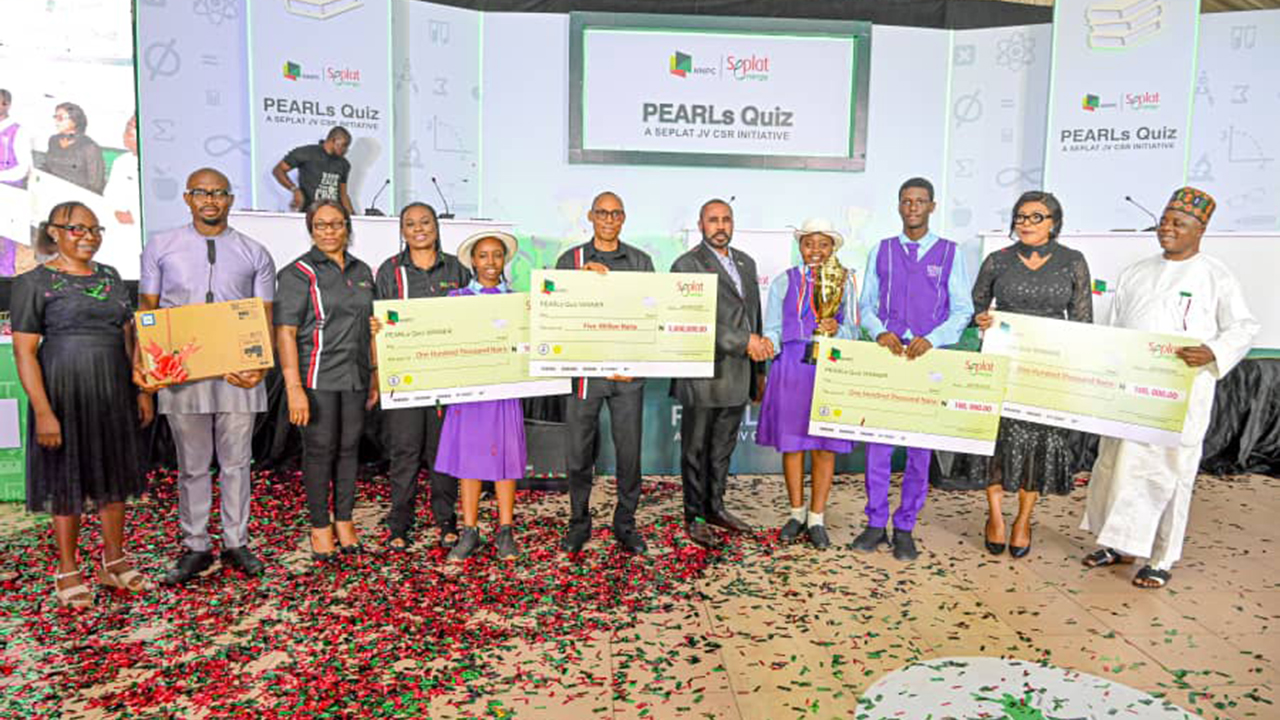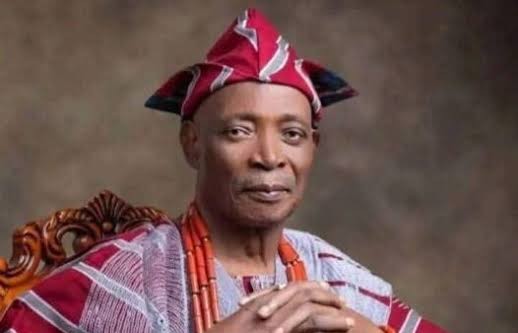As the corporate community in Nigeria shifts from investing in clinics, boreholes and roads to human capital, Seplat Energy, through its flagship PEARLs Quiz programme, is turning learning into an engine of growth, OPEYEMI BABALOLA writes.
Across Nigeria’s oil belt, where pipelines once promised prosperity, a new kind of wealth is emerging – knowledge. From Edo to Delta, ideas are replacing crude as the most valuable resource, reshaping how communities think about opportunity and progress.
While Nigeria’s oil industry remains vital, the country’s real advantage now lies in its people. Nearly 70 per cent of Nigerians are under 30, a generation whose potential could redefine national wealth if given the tools to learn, create, and compete.
Recent World Bank data show that every extra year of schooling can raise individual earnings by up to 10 per cent – proof that education pays, literally and nationally. For Seplat Energy, this is the logic behind its education investments: Turning learning into an engine of growth.
That vision took centre stage on October 23, 2025, at the Marquee Event Centre in Asaba, when Seplat’s flagship PEARLs (Promoting Exceptional and Respectable Leaders) Quiz programme brought together students from across Edo and Delta States. The atmosphere pulsed not with the rumble of oil rigs but with the quick fire buzz of quiz pads, applause, and the intensity of teenagers defending their science, technology, engineering, arts, and mathematics (STEAM) ideas.
By the end of the contest, Pioneer Education Centre in Benin claimed the ₦10 million grand prize to build an ICT lab; Notre Dame College, Uvwie received ₦5 million; and Eucharistic Heart of Jesus Model College earned ₦3 million. Hollywood International School also won ₦1 million for its multifunctional STEAM lab design. For many of these schools, the prizes will go far beyond trophies – they mean modern classrooms, working computers, and real access to 21st Century learning.
But the bigger picture runs deeper. The PEARLs Quiz is only one part of Seplat Energy’s broader playbook – one that pairs funding with teacher development, mentorship, and partnerships to ensure that Nigeria’s next generation is not just educated, but equipped to lead.
From Spectacle To System
At first glance, PEARLs has the cadence of a public spectacle – bright lights, camera crews, speeches and winners’ photographs. But corporate actors have learned that spectacle only buys attention; sustainable change requires systems. Seplat’s model has, at least, three linked components: Competition (PEARLs), hands-on innovation (the STEAM challenge), and teacher capacity building (the STEP programme). The combination is deliberate. Company leaders explicitly position the quiz as an entry point for deeper investments in school infrastructure and teacher practice. That approach addresses a key challenge in Nigerian education: Low engagement and limited opportunities. Recent data from the Universal Basic Education Commission (UBEC) indicates that fewer than 50 per cent of public schools have computer labs, and basic digital skills among senior secondary students are below 30 per cent – gaps that hinder progress towards a knowledge-based economy. Programmes that provide devices, funding for lab setup, teacher training, and local incentives for ongoing use create a comprehensive pathway to improve the current situation.
Why Companies Are Treating Knowledge Like Capital
For decades, corporate community investment in Nigeria meant clinics, boreholes and roads. That model still matters. But as governments and markets shift, firms are redirecting funds towards human capital because a more skilled local workforce is both a public good and a strategic asset.
Seplat JV’s education portfolio – PEARLs, STEP, STEAM labs and scholarships – reads like a deliberate bet that the social licence to operate in host communities depends increasingly on demonstrable investments in future employability, not just immediate infrastructure. Managing Director of NEPL, Nicolas Foucart, (represented at Asaba), captured this when he congratulated students on reaching the final stage and praised state support for creating the environment in which firms can give back.
Globally, this shift is consistent with a broader corporate redefinition of CSR into strategic social investment. Firms are linking philanthropic spending to measurable outcomes – skills, certifications, and system changes – so that their interventions can be evaluated against public-policy goals such as SDG 4 (Quality Education).
The World Bank’s recent financing and policy engagement in Nigeria underlines the moment: Donors and development partners are investing in education quality and technology precisely because human capital is central to economic resilience.
STEAM As Practical Policy
PEARLs’ STEAM Innovation Challenge turned theory into tangible outcomes: Multifunctional lab prototypes, automation models, and other student-built innovations that showcased creativity and applied learning. The prize for Hollywood International School’s multifunctional lab underlines Seplat Energy’s vision of driving practical, locally relevant science education in Edo and Delta States.
In her opening remarks, Seplat Energy’s Director of External Affairs and Social Performance, Chioma Afe, (represented by Hadiza Garbati, General Manager, Government Relations), said the initiative, conceived in 2012 to promote exceptional and respectable leaders, has grown into a platform that nurtures the next generation.
She commended all participants, stressing that “a school might be going home today with the prize, but all of you are already winners.” More importantly, she said the real victory lies in the learning each student takes forward to become a better individual.
Her message captured Seplat Energy’s broader intent: To make education both aspirational and transformational in the communities where it operates – a goal that bridges competition with capacity.
Who Wins And Who Follows?
There’s a political economy to prize competitions. Big awards are attention magnets; they surface talented students and create local champions. But prizes also change incentives in schools. Where a community once aimed merely to pass exams, a plausible path to funding for labs and ICT equipment creates reasons to invest in practical learning.
Governor Sheriff Oborevwori’s remarks at the Asaba finale – commending the joint venture and celebrating the students’ promise – were a public nod to that dynamic: States welcome corporate partners that add capacity and visibility. Yet the governance question remains: Can such private investments be channeled into public systems in a way that benefits a broad swathe of students, not just the winners?
Seplat Energy’s own strategy aims to broaden impact. The programme is more than a single winner’s cheque; it includes teacher training, STEAM competitions and follow-up. Company representatives at Asaba underscored that the aim is to see change across districts –winning schools are expected to become demonstration sites where other schools can learn. This “lead school” model is familiar from successful education reforms elsewhere – pilot, evaluate, adapt and scale.
By pairing tangible rewards with teacher training and follow-up support, Seplat’s model moves beyond one-off competitions. The focus on demonstration schools, mentorship, and replicable project-based learning ensures that impact extends beyond the hall of the finale, laying the groundwork for systemic change. This approach naturally leads to questions about how such private-sector innovations can inform broader education policy and be scaled sustainably.
Policy Implications: From Pilot To Public
If Nigeria’s long-term goal is to make knowledge the “new oil,” two policy moves will be crucial. First, the state must create channels to recognise and scale successful private pilots – accredit STEP-style modules into teacher CPD (continuous professional development) systems and validate STEAM project assessments.
Second, monitoring and independent evaluation must be funded. Third-party measurement will separate publicity from impact and allow models to be adapted. When private money is used to seed public capacity, governments must ensure alignment with curricula and inclusion so that gains are widely shared. The DIKSHA platform in India offers a useful comparative lesson – a national edtech backbone that scaled because it was integrated into government systems and supported by cloud infrastructure and teacher training.
A New Contract For A New Century
Seplat’s PEARLs Quiz and accompanying programmes are emblematic of a broader shift in how Nigerian companies view their role in host communities. No longer merely donors, firms are becoming partners in skills development — investing in teachers, labs, and motivation. When they do so in coordinated ways that align with public goals, private investments can accelerate the creation of local human capital. When they do it ad hoc, they risk producing spectacle without substance.
As the Asaba finale demonstrated, the ingredients for a knowledge economy are not rocket science: Curious students, trained teachers, functioning labs, and sustained support. What matters now is whether pilot successes can be institutionalised. If Seplat’s approach can be systematised – measured, adapted, and scaled – then perhaps the company’s prize money will be remembered not for a single winning day in Asaba but for the cohorts of students whose futures it helped to shape. In that case, Nigeria’s richest resource will be the minds it nourishes.
Ultimately, the question is not how much is spent, but how deeply the investment transforms learning and aspiration. If the spark of curiosity ignited in Asaba spreads beyond the competition hall into classrooms, communities, and future careers, then Seplat JV’s model will have proven that strategic corporate engagement can convert knowledge into enduring national wealth. In a country brimming with young talent, nurturing minds may just be the most valuable pipeline of all.






